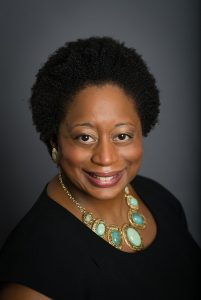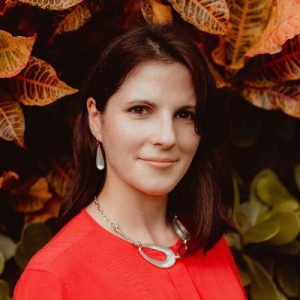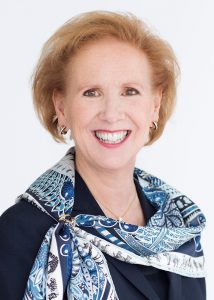Over the past year and a half, the United States has reckoned with the pandemic, a breakdown of race relations, rising wealth inequality, the looming threat of climate change and a disorderly transition of power. US philanthropy has responded with more funding, more flexibility, and greater urgency in promoting racial justice, action on climate change and reforms to its own practice. But is it enough? And is the outlook different in Canada?
This webinar was part of Alliance’s 25th anniversary series, which looks at what the future of philanthropy holds in different regions around the world. It focused on the U.S and Canada, and was produced in partnership with United Philanthropy Forum.
Moderated by Charles Keidan, executive editor for Alliance magazine, the speakers were: Marissa Tirona, President of Grantmakers concerned with Immigrants and Refugees (GCIR); Dr Maribel Morey, director of the Miami Institute for social sciences, co-founder of the HistPhil website, and author of an upcoming book on the history of Carnegie Corporation; and Hilary Pearson, founder and former president of Philanthropic Foundations Canada (2001-2019), and author of an upcoming book on Canadian philanthropy. Amanda Andere, chair of United Philanthropy Forum and CEO of Funders Together to End Homelessness, gave opening and closing remarks.
 Amanda Andere
Amanda Andere
Following Charles’ opening, Amanda introduced the work of United Philanthropy Forum (UPF), a membership network of more than 90 regional and national philanthropy-serving organisations, representing more than 7000 funders across the US. The forum envisions a ‘courageous philanthropy sector that catalyses a just and equitable society where all can participate and prosper.’
She posed some important framing questions, asking, ‘is diversity and inclusion enough, or do we need to take bold action that starts to dismantle power and decolonize the role of philanthropy as gatekeepers by leading with justice and liberation?’
She and other UPF members want to ‘lead with vision and action, and that action has to start with change at the policy and systems level.’ She encouraged the audience to consider ‘how we censor ourselves in this work, how we are all gatekeepers by the privilege we might have’ and suggested that ‘we start to decolonise our own thinking’ around philanthropy.
 Marissa Tirona
Marissa Tirona
Marissa gave her thoughts on what the current priorities for philanthropy in the US are, and whether they are the right ones to best serve future generations. Though the sector ‘hasn’t prioritised developing a shared, collective, cohesive vision for itself’, Marissa did give an illustrative list of some emerging priorities in the US institutional philanthropic sector:
- Increased investment in addressing racial justice, with significant investment in organisations led by and for black people.
- More investment by large philanthropic organisations in power-building and organising to promote democratic processes, rebuilding trust in governmental institutions, and addressing disinformation and rising authoritarianism.
- Focus on climate change, with more emphasis on centering justice in addressing this challenge.
Marissa also highlighted some notable practices taking root in institutional philanthropy:
- Larger philanthropic institutions investing more in multi-year and unrestricted funding.
- More philanthropic leaders and institutions issuing calls to action to their peers to reimagine grant-making. Examples: the climate justice funders pledge and Marguerite Casey Foundation’s recent initiative to close the say/do gap in philanthropy.
Marissa then quoted directly from an Open Letter to Philanthropy coordinated by the Groundswell Fund:
‘The uprisings of 2020 sparked historic levels of giving to address racial injustice. For philanthropy, this signals a tremendous and unprecedented opportunity to dismantle white supremacy in both our country (who we fund) and our sector (how we fund). In both contexts, the cornerstone of white supremacy is dominance and control. By contrast, the cornerstone of racial equity is sharing resources and decision-making power in a way that fundamentally supports the self-determination of people of colour.’
Marissa pointed out that People of Colour-led funders have been practicing this type of grantmaking for years, and suggested that larger philanthropic institutions have a blueprint to follow from smaller social justice funders who are ‘on the leading edge of reimagining what it means to be a grantmaker.’
She referenced a few leaders who have inspired her, including Carmen Rojas of the Casey Foundation, Jennifer Ching at Northstar fund and Vanessa Daniel at Groundswell Fund. She stated that their strategies have ‘shifted power within their institutions, built power with their grantees and really catalysed sector-wide conversations about racial justice.’
Marissa acknowledged that while a shift towards this type of grantmaking is happening in larger institutions, it is not happening quickly enough, and noted that one of the main barriers to this transformation is a ‘struggle or lack of commitment to addressing racial justice internally.’
 Dr Maribel Morey
Dr Maribel Morey
Historian of philanthropy Maribel Morey started by noting that ‘criticisms of elite philanthropy have been longstanding.’ She pointed out that even in the 1910s in the US, Republican Senator Miles Poindexter argued that ‘the exclusion of Rockefeller and Carnegie influences in education was as important as the separation of church and state.’
She also quoted W.E.B Du bois in his 1918 review of a survey of black schools authored by Thomas Jesse Jones: ‘the black person who shows the slightest independence of thought or character is apt to be read out of all possible influence not only by the white South, but by the philanthropic North.’
Since then, the critical study of philanthropy has continued, particularly with the opening of the Rockefeller Archive Centre in the 1970s. However, Maribel stated that what we need is ‘real systemic changes honestly addressing the problem of white Anglo-American supremacy across so many aspects of our lives, from the private sector, non-profit sector, to the governmental sector at the national and international levels.’
She implored the community to question ‘the purposes and aims of these white Anglo-American spaces’ and consider what ‘forms of knowledge, of funding, of governance, perhaps suppressed, could have led and could lead us to more equitable, sustainable national and international political economies.’
As well as more radical, structural reforms, she also called for more ‘incremental’ changes in elite philanthropy such as diversifying boards, increasing foundation payouts, increasing public transparency and accountability, and moving funds towards BIPOC-led organisations.
Maribel stated that if elite US philanthropy did not respond to these wider structural critiques and reforms, it would ‘prove itself, both in its rejection of greater public transparency, public accountability and quicker wealth distribution, to be much more invested in preserving the…financial interests of a few than in actually serving the public.’
Poll results
The audience poll question was: ‘what reforms are most needed to get US philanthropy back on track?’ The results were as follows:
- 56% majority voted for making billionaires pay more tax through a wealth tax
- 20% said diversifying foundation boards
- 13% said increasing foundation payouts
- 8% said introducing payouts for donor-advised funds
Maribel commented that all of the options were ‘complementary and needed reforms’ in order to drive both ‘internal structural changes within foundations’ and wider change in the sector.
 Hilary Pearson
Hilary Pearson
Hilary began by looking back on the history of organised Canadian philanthropy, and how the trajectory of it has been influenced by US philanthropy. She stated that ‘cross-border, personal and business connections shaped the creation of private charitable trusts in Canada’ and mentioned how 20th century prime minister Mackenzie King previously worked at the Rockefeller Foundation.
Where Canadian philanthropy excels in comparison to the US, is their ‘relative success at collaboration…[which is] a particular advantage when it comes to tackling complex problems that require collective action, such as climate change.’ She stated that Canadians are more centrist, and that ‘without the extremes of ideological and values polarization that we see in the US, foundations can work together without having to declare a side.’
They were also more willing than their US counterparts to let government lead. ‘From 1960s a progressive tilt to our federal politics has brought us to a place where public education, public health and social security support gives the majority of our population a safety net that simply isn’t there in the US,’ she pointed out.
Hilary explained that ‘Canadian philanthropy has much to offer, inside and outside our borders’ and spoke about some of the recent innovations and collaborative initiatives that Canadian philanthropists are addressing, including:
- Policy development around carbon pricing, marine and forest conservation, and tackling climate change.
- Social inclusion projects to integrate large numbers of immigrants and refugees into Canadian society.
- Relationship building and reconciliation with indigenous communities.
However, Canadian philanthropy does have its weaknesses: ‘our pragmatism can become caution, our modesty lack of aspiration.’ Like US philanthropy, there are ‘important voices and perspectives that are not included’ and the sector has been critiqued for its opaqueness, elitism, and ‘reluctance to step up in public to advocate and organise for social change.’
Hilary explored how the pandemic is changing the philanthropic landscape in Canada by revealing the inequalities in society, from health and childcare coverage to support for vulnerable populations, mental health services and more. These gaps are ‘pushing funders to become bolder in making collective statements on the need and the urgency of policy change, and making collective commitments to change the work of philanthropy itself.’
She stated that during the pandemic many funders signed a pledge to ‘free their grants from restrictions, to grant for longer periods, to make themselves more transparent and accessible.’ She’s optimistic that this will be a long term shift, one that teaches valuable lessons that the wider philanthropic community can benefit from.
On the topic of the historic abuses of indigenous populations in Canada, Hilary believes that there is a strong view among many influential foundations that ‘the work of reconciliation has got to accelerate.’ However, she also emphasized the need for philanthropy to take its cues from indigenous leaders, as it is ‘a reciprocal work…it’s multigenerational work, it’s not a quick fix.’
Diversity in foundation boards
Following Hilary’s presentation, Charles invited all of the panellists to comment on the governance arrangements and lack of diversity in the Gates foundation’s board, which is currently made up of only two members, Bill and Melinda Gates, who are divorcing.
Marissa answered by quoting a tweet: ‘the fact that a failed relationship between two people could have such a significant impact on healthcare systems and countries is problematic.’ She added that having so much power concentrated in the hands of the few is ‘one of the most significant problems of elite institutional philanthropy in the US.’
US public today feels less empowered to criticise philanthropy…or to even feel like they have a right to define public resources
However, there is a growing movement among social justice funders and organisers who want to move towards participatory grant-making, ‘ensuring that decision-making around resources are stewarded by the collective.’
Comparing the Gates foundation and Mackenzie Scott’s philanthropy, Maribel Morey pointed out that the big difference between them is that the ‘public seem a lot more defensive of Mackenzie Scott’s philanthropy than they are of Gates…even in the non-profit and philanthropic sector there’s a lot more self-censorship of any critique of Scott’s philanthropy’, noting that this may be because some hope to receive her funding and therefore don’t want to appear critical.
Morey stated that the Gateses and Scott are both very guarded and ‘not so big on explaining how they get to their funding decisions,’ which she believes they owe to the public, as their decisions directly impact the public realm. She added that she thinks the ‘US public today feels less empowered to criticise philanthropy…or to even feel like they have a right to define public resources…[we have] lost some of that sense that the public has a right to shape the world around them.’
Hilary questioned whether ‘family philanthropy at massive scale is an appropriate model’ and added that diversity of boards ‘is a weak link for many foundations.’ She emphasized the importance of foundations having accountable and diverse governance, particularly those which play an influential public role.
Q&A
Charles then opened up the panel to audience questions. The first was from Jeffrey Ashe of Grassroots Finance Action, whose focus is on immigrants and strengthening community mechanisms. He asked ‘how can philanthropy provide small pools of unrestricted funding to explore pioneering new approaches [to philanthropic work]?’
Marissa highlighted existing pathways to ‘stimulate and strengthen the innovation already happening’ and the work smaller social justice funders are doing to support participatory grantmaking, where innovations such as mutual aid societies and flexible funding can happen. She also focused on the benefits of funders investing in ‘infrastructure that is both flexible, nimble and really meets the needs of the groups where they are.’
The next question was from Brenda Herchmer, from Campus for Communities of the Future, who asked: ‘are the UN sustainable development goals being considered as a potential framework for prioritising funding both locally as well as globally?’
Our definition of racial equality might be very different than that of grantees
Hilary replied by saying that although large foundations are thinking about how the SDGs can be operationalised in philanthropy, the challenge they face is that ‘they need to be working hand in hand with government’ and there is often a misalignment of views among the various players involved.
Hilary stated that the ‘government’s regulatory framework is not flexible enough to allow for this kind of multi-sectoral work, and that’s a big issue for us.’ Modernisation of these regulations are a topic of debate in Canada, and though ‘the will is there…some of the mechanisms need to be developed further.’
Rockefeller Philanthropy Archive’s Patricia Rosenfield asked, ‘beyond recommendations made here, what structural changes will make real just and lasting change?’
Maribel addressed this question. At the meta level, she emphasised the need to take forward ‘current conversations on thinking beyond neoliberalism’ and asked ‘what other forms of national and international political economy can we imagine that would be sustainable and help so many of us across the world thrive better?’
At the micro level, she encouraged grantmakers to consider that ‘our definition of racial equality might be very different than that of grantees,’ and to have honest conversations around what this definition might mean. She also called on funders to interrogate the assumption that national and international peace requires ‘white Anglo-American domination’, and to question their own internal biases when it comes to choosing their network of advisors.
Closing remarks
United Philanthropy Forum’s Amanda Andere closed out the webinar by reflecting on the discussion and acknowledging the ‘incredible privilege we have to be able to have these discussions while people are suffering…and the power we have to move resources and systems towards further liberation.’
In the wake of uprisings in the US last year that became a global movement, Amanda encouraged the audience to leave the discussion ‘thinking about what we are actually putting on the line…to move philanthropy to a place of actual liberation and reform.’
She finished with the rallying call: ‘and now it’s time to act.’
The next part of our ‘future of philanthropy’ webinar series continues in August with a focus on Africa in partnership with the African Philanthropy Network and WINGS.
To be the first to find out when registration opens, sign up to our free newsletter. You can also learn more about our upcoming 100th issue and 25th anniversary celebrations here.
Watch a recording of the webinar below
This webinar was sponsored by United Philanthropy Forum unitedphilforum.org







Comments (0)